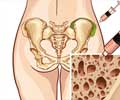A novel way to expand blood-forming, adult stem cells from human umbilical cord blood (hUCB) has been developed. Adult stem cell treatments for conditions such as leukemia, blood disorders, immune system diseases, and other types of cancers can be speeded up.

TOP INSIGHT
A novel way to expand blood-forming, adult stem cells from human umbilical cord blood (hUCB) has been developed. Adult stem cell treatments for conditions such as leukemia, blood disorders, immune system diseases, and other types of cancers can be speeded up with this new development.
Only 30 percent of patients have a bone marrow donor match available in their families, according to the US Department of Health and Human Services. More than 170,000 people in the US are expected to be diagnosed in 2018 with a blood cancer (leukemia, lymphoma, or myeloma) according to the American Cancer Society.
Adult stem cells from umbilical cords are more likely to be a match for more people because there are fewer compatibility requirements than for a bone marrow transplant. But adult patients need two cords' worth of blood per treatment, and there aren't enough cord units available for everyone who needs the treatment. "If we can expand cord adult stem cells, that could potentially decrease the number of cords needed per treatment. That's a huge advantage," says Li.
In the study, published online in Cell Research, researchers zeroed in on a protein that affects multiple targets and pathways involved in hematopoietic stem cell self-renewal, a broader approach than other studies that focus on a single target or pathway in the process. The protein, called Ythdf2, recognizes a particular type of modification on a group of mRNAs encoding key transcription factors for hematopoietic stem cell self-renewal and promotes the decay of these mRNAs within cells.
When the team knocked out Ythdf2 function in a mouse model or knocked down Ythdf2 function in hUCB cells, they observed increased expression of these transcription factors and expansion of hematopoietic stem cells, which are the major type of adult stem cells in hUCB. They observed that impairing Ythdf2 function did not alter the types of cells that were subsequently produced, nor did it lead to increased blood cell malignancies. In addition, the knock down treatment isn't permanent, thereby allowing Ythdf2's function to be restored after transplantation.
Those kinds of genetic mutations could lead to the re-genesis of leukemia or cancer, Zhenrui Li explains. Since the Ythdf2 protein is present in different kinds of adult stem cells, targeting it and how it affects hematopoietic stem cells seemed a safer approach and, if it worked, broadly applicable.
"This work represents a path forward by demonstrating the ability to reliably expand adult stem cells from umbilical cord blood in the laboratory without terminally differentiating the cells into more mature and relatively short-lived blood cells," says Joseph McGuirk, MD, professor of medicine and medical director of blood and marrow transplant at the University of Kansas Health System, who was not directly involved with the study. "These findings represent a major advance in the field and have significant potential to improve the outcomes of thousands of children and adults who undergo umbilical cord blood transplantation every year."
Source-Eurekalert
 MEDINDIA
MEDINDIA




 Email
Email





